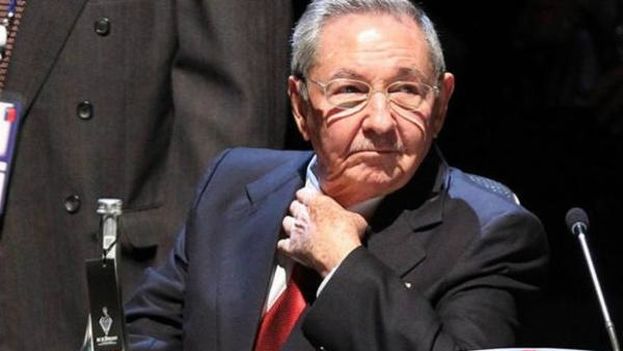
![]() 14ymedio, Reinaldo Escobar, Havana, 22 November 2016 – In the next 40 days, before the end of the year, the Cuban Communist Party must hold its second Central Committee Plenum and approve the final version of the documents issued by their most recent congress. It is expected that there will also be a meeting of the Council of Ministers and a third session of the 2016 National Assembly of People’s Power. These three events will mark the beginning of the last year of Raul Castro’s government, and the deadline for the fulfillment of his pending promises.
14ymedio, Reinaldo Escobar, Havana, 22 November 2016 – In the next 40 days, before the end of the year, the Cuban Communist Party must hold its second Central Committee Plenum and approve the final version of the documents issued by their most recent congress. It is expected that there will also be a meeting of the Council of Ministers and a third session of the 2016 National Assembly of People’s Power. These three events will mark the beginning of the last year of Raul Castro’s government, and the deadline for the fulfillment of his pending promises.
Not included in this list are details such as the glass of milk he promised every Cuban in July of 2007, or the eradication of the invasive marabou weed from the Cuban countryside, the unresolved problems of his administration which include ending the dual currency system, eliminating the rationing system, ratifying the United Nations human rights covenants – signed by Cuba but never ratified – and achieving efficiency in the state socialist enterprise.
The list of outstanding promises also includes producing food that is affordable to Cuban wallets, achieving the necessary volume of foreign investment, promulgating a new electoral law, and ensuring that wages become the main source of income, as well as leaving behind the conceptualization of and a viable program for, an economic, political and social model for future generations.
In this regard, only the theoretical commitments appear to be on track to be completed, while the unconcluded debts of Raul Castro’s mandate are exactly those that would directly impact citizens’ lives. Although the conceptualization never moved beyond an intellectual exercise, the program to 2030 rests on conjectures and promises for which Castro will have no opportunity to respond.
In the coming months, there would have to be a surge in the average private enterprise and the opening of the wholesale market so necessary to satisfy the demands of workers in the private sector. The countdown for the ending of unearned freebies and inflated payrolls is entering its final minutes.
Before the conclusion of his time in the presidential chair, Raul Castro has the responsibility to adopt measures that will lessen the emigration hemorrhage, structure an effective plan to address the demographic problem, and finally bring before parliament a law to regularize same sex relationships.
Before handing over power, Fidel Castro’s younger brother should decriminalize political dissent and propose a dialog so that the different viewpoints gaining force in the country can seek consensus to avoid more dramatic confrontations.
Will the general president bring such a demanding agenda to a conclusion, or does he intend to leave such tasks to his successors?
In the more than 400 days left to him as president of the Councils of State and of Ministers, Raul Castro will be forced to pick up the pace. Time, implacable, is running out. In the final stretch that remains of his mandate he will no longer have space for experiments or leisurely actions. There will be no pause, but much haste.*
*Translator’s note: Raul Castro promised to update the country’s economic, social and political model “without haste, but without pause,” and the phrase has become a centerpiece of his tenure.
